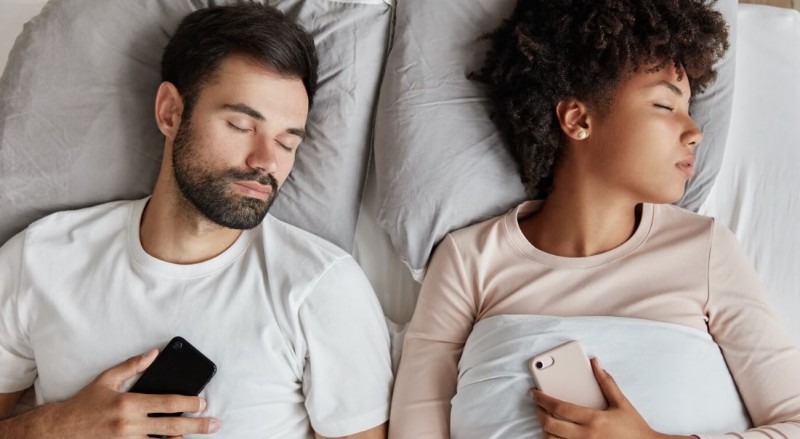
In the modern era, our dependence on smartphones is undeniable. They serve as our alarms, our source of entertainment, and our connection to the outside world. However, the convenience of having your phone by your side at all times, including while you sleep, comes with hidden health risks that experts are increasingly warning about. This article delves into why it is crucial to maintain a safe distance between your mobile phone and your sleeping area, backed by expert opinions.
Why Distance Matters
Mobile phones emit low levels of radiofrequency radiation when they are on and connected to a network. While this radiation is not as powerful as ionizing radiation (like X-rays), prolonged exposure, especially close to your head, can have potential health implications.
1. Stress and Brain Function
Keeping your phone too close can increase stress levels. Dr. Elizabeth Calderon, a neurologist, points out that the radiation from phones can interfere with brainwave patterns. This interference can lead to stress and disrupt the natural sleep cycle.
2. Anxiety and Depression
Increased stress levels can exacerbate anxiety and even contribute to depression. Dr. John Hutton, a psychiatrist, explains that the continuous engagement with notifications and the light emitted by phones can trigger mental health issues. By keeping your phone at a distance, you can reduce these triggers and promote a healthier mental state.
3. Impaired Sleep Quality
The blue light emitted from phone screens can suppress the production of melatonin, the hormone responsible for regulating sleep. Dr. Sarah Mitchell, a sleep specialist, advises that notifications and vibrations can disrupt your sleep cycle, leading to poorer sleep quality and long-term sleep issues. Switching your phone to airplane mode or placing it across the room can mitigate these disruptions.
4. Cervical Problems
Using your phone while lying down can lead to poor posture, causing strain on your neck muscles and potentially leading to cervical issues. Dr. Michael Lee, an orthopedic surgeon, emphasizes that holding your phone above your head or resting it on your chest while lying down can contribute to chronic neck pain and other musculoskeletal problems.
5. Migraines
Proximity to a mobile phone can also increase the risk of migraines. According to Dr. Linda Harris, a neurologist specializing in headaches, electromagnetic fields (EMFs) emitted by phones can be a trigger for migraines in susceptible individuals. Maintaining a safe distance can help reduce the frequency and severity of these headaches.
Expert Recommendations
Ideal Distance:
Experts recommend placing your phone at least three feet away from your bed. This distance helps minimize exposure to radiation and reduces the likelihood of disturbances from notifications and vibrations.
Alternative Placements:
Another Room: The best option is to leave your phone in another room while you sleep. This eliminates any potential disturbances and ensures complete disconnection from the device.
Opposite Side of the Room: If you need your phone for its alarm function, place it on a table or dresser on the opposite side of the room. This way, you'll still hear the alarm but avoid the radiation and light exposure.
Airplane Mode: If you prefer keeping your phone nearby, ensure it's on airplane mode to cut off all wireless signals. This reduces radiation emissions and prevents notifications from disturbing your sleep.
The convenience of having your mobile phone nearby while you sleep is overshadowed by the potential health risks associated with its proximity. From stress and anxiety to impaired sleep quality and physical ailments like cervical issues and migraines, the dangers are significant. By following expert recommendations and keeping your phone at a safe distance, you can improve your sleep quality and overall health. Adopting these practices not only ensures better physical health but also promotes mental well-being in our technology-driven world.
What is Toxic Shock Syndrome (TSS): Causes, Effects, and Prevention
THESE Five Simple Lifestyle Habits Help Keep Your Uterus Happy
Heatwaves Pose Greater Risks to People with Disabilities, Lancet Study Reveals